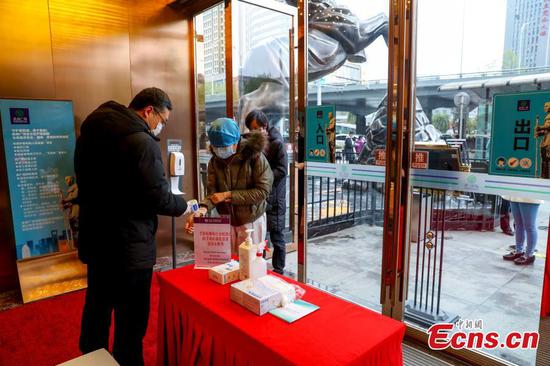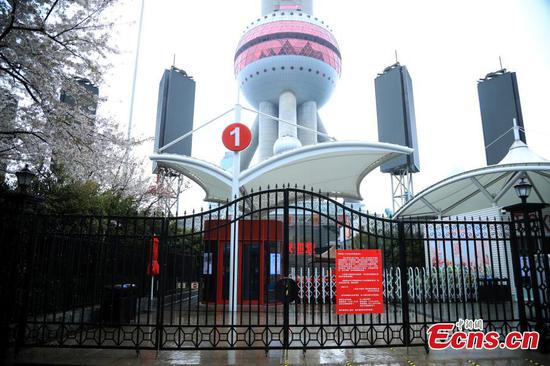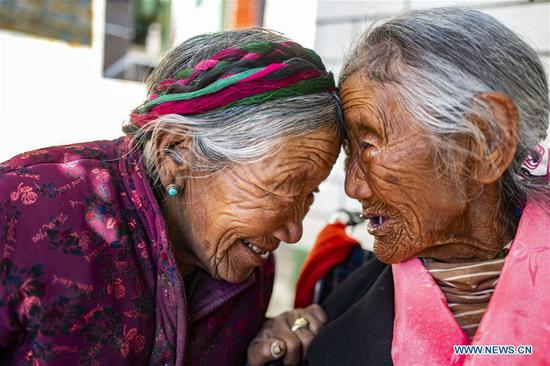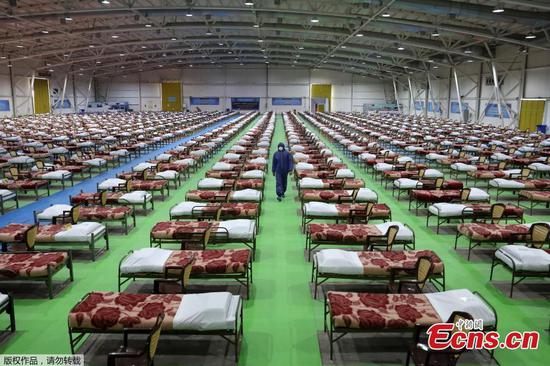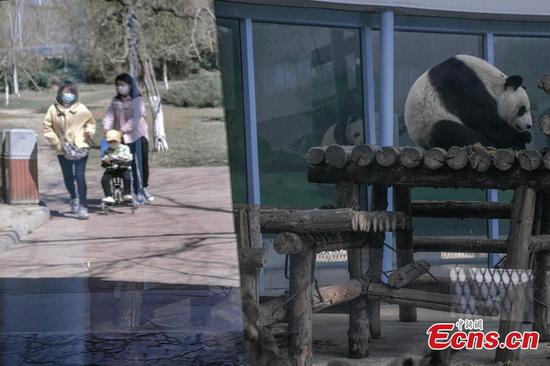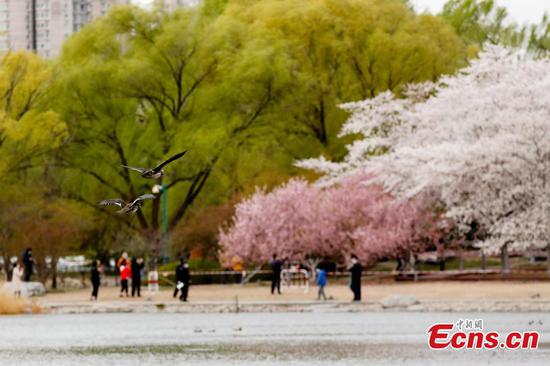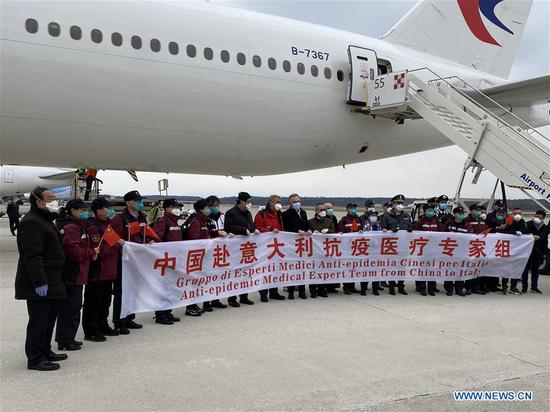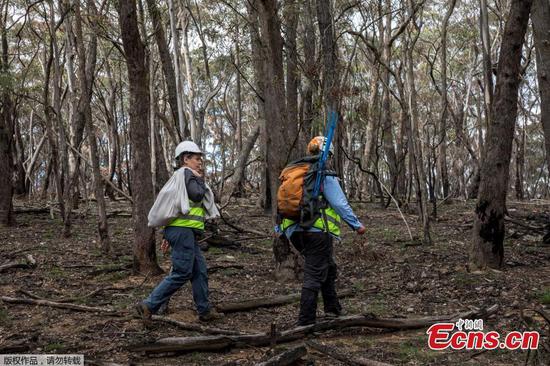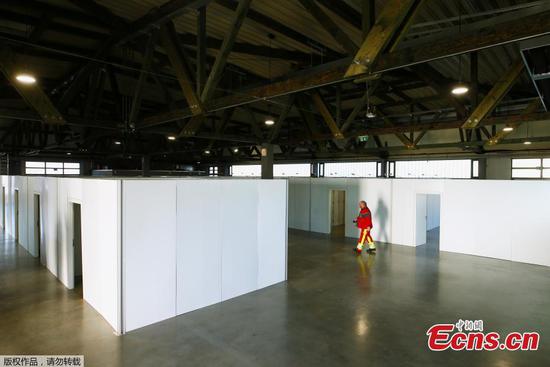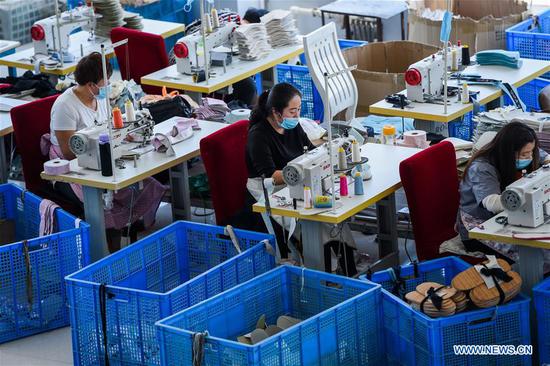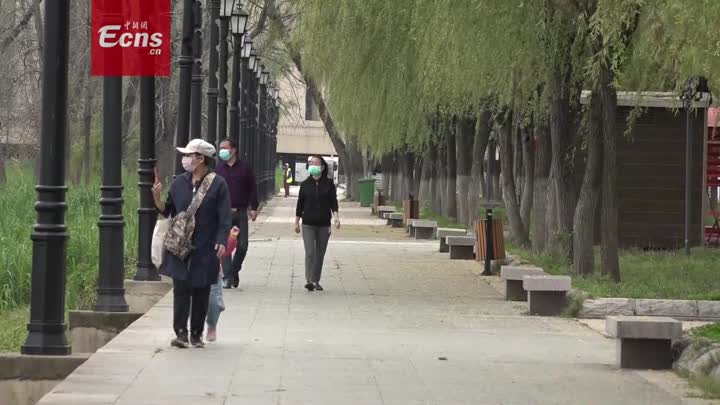Two spoons of zanba, a traditional Tibetan staple food of roasted barley flour, were all that Padma's parents earned after a hard day's work at their landlord's estate.
The little food could barely feed Padma and his four siblings, and starvation was the norm for the serfs' family in southwest China's Tibet Autonomous Region.
"Living in a dimly-lit room of 15 square meters, the seven members of my family all slept on the floor, covered only by a ragged piece of sheepskin," said Padma, recalling his childhood days.
Such a plight came to an end in 1959, when the family was granted 11 mu (0.7 hectares) of land to grow crops, after a democratic reform liberated more than 1 million people, or 90 percent of the population of the region at that time, from the feudal serfdom.
"Today, we have more than enough zanba to eat. We eat only the fresh one and give the rest to the livestock," said Padma, now 66, who lives in a village near the city of Shigatse. "My wife and I have new clothes to wear every year, and my children all wear clothes made of cotton."
More than six decades after the reform, today's Tibet is a far cry from the dark days of feudal serfdom, with residents enjoying rights and freedom unimaginable in the past, and their living standards greatly improved.
Tibet has basically eradicated absolute poverty, with all counties taken off the poverty list. The average life expectancy of the people in Tibet has risen to 70.6 from 35.5 before 1959.
Qizhala, chairman of the regional government of Tibet, hailed the socialist path the region has taken after the reform in a speech on Saturday that marked the Serfs' Emancipation Day.
"The huge changes that have taken place in Tibet over the past decades have shown the institutional strengths of socialism with Chinese characteristics," said the chairman.
Having lived in both the old and the new societies, 90-year-old Palbar Tsajo bore witness to how the abolition of feudal serfdom 61 years ago ushered in a new era in Tibet's history.
In 2012, with the support of a government-sponsored housing project, her family moved into a two-story house.
"For nearly all my life, the family had been living with livestock under the same roof. I had never imagined living in a concrete house," said Palbar Tsajo. "Now, we don't have to eat with the smell of cow dung."
The people-centered approach the government has taken after the democratic reform has ensured that the Tibetan people share the fruits of development. In 2019, the per capita disposable income of urban residents was 37,410 yuan, and that of rural people reached 12,951 yuan.
The Tibetan people also enjoy 15 years of free education and benefits from an urban-rural medical service network.
"In the 1960s, my youngest sister had to give up schooling to help the family with farm work," said Palbar Tsajo.
Twenty years later, her youngest son grasped the chance to study in the northern port city of Tianjin and became a police officer in Shigatse after graduation.
After her great-grandchild was born, Palbar Tsajo is now a happy great grandmother in a large family.
"I am now 90 and have received government subsidies for many years," said Palbar Tsajo. "The government takes such good care of us elderly people that I want to live longer and enjoy it to the fullest."









